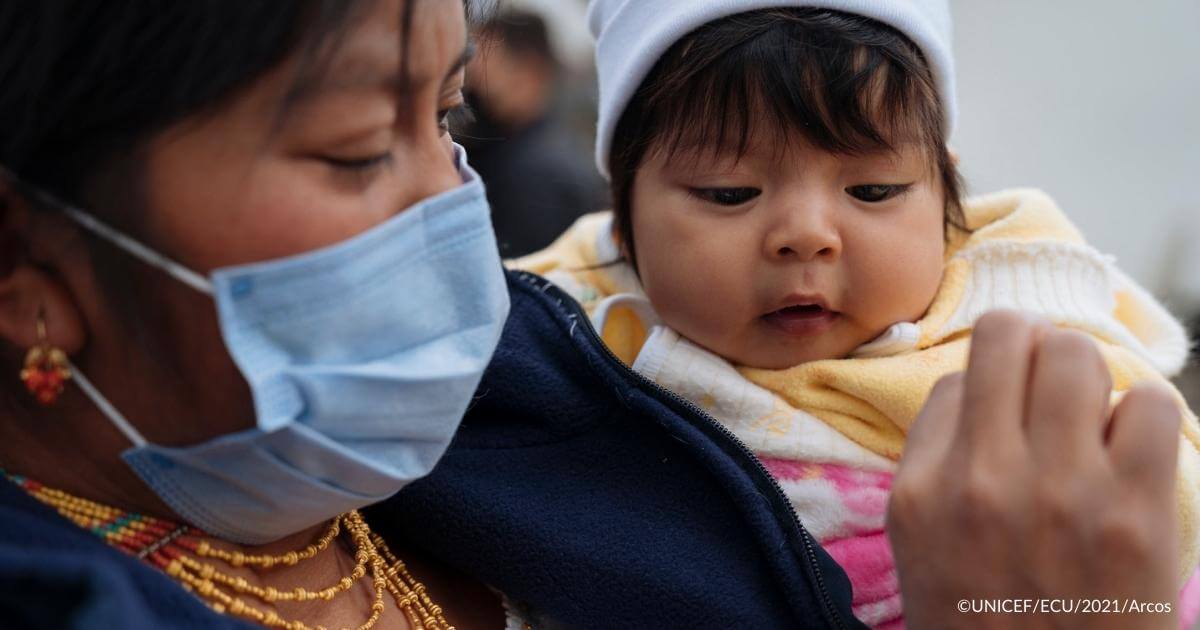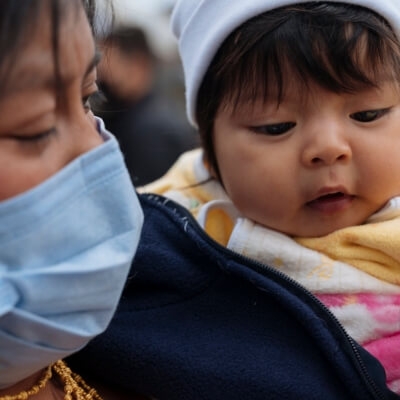Coordinating Care for Asylum Seekers Arriving on Buses in Washington DC

In 2022, the pediatricians at Children’s National Hospital (CNH) in Washington, DC, noticed an uptick of asylum-seeking children in their exam rooms. “We started seeing children coming through the DC area, and we were asking, ‘Why is their address a hotel?’” recalled Kathy Ferrer, MD, physician at CNH. At first, the DC area did not develop a coordinated response, in part because it was assumed that the vast majority of those arriving would continue on to another community. There was an assumption that they “weren’t really ‘DC residents’ so they’re not necessarily eligible for DC services unless there’s an emergency,” Dr. Ferrer said, but it quickly became apparent that the newly arrived migrants needed services, and that many did not have a plan to leave the region anytime soon. After one child staying in a hotel was checked into the emergency room and then ended up in the ICU, the providers worried she couldn’t get timely follow-up care since she was uninsured. They feared she would not be eligible for DC health coverage if she was considered to be “transiting through DC” instead of living in DC. In September 2022, as part of its standard yearly operations, the Washington, DC Department of Human Services (DHS), partnered with the CNH Mobile Unit to begin a school-based vaccination campaign. Local advocates pushed to expand the vaccination campaign into the hotels. The CNH mobile unit’s involvement enabled the children to get medically ready for school, and mobilized local leaders to push for a bigger, coordinated response. Within a few months, Washington, DC’s leaders had voted in new funding to care for arriving migrants, creating the Office of Migrant Services (OMS). The mobile team connected with the CNH immigrant health team to begin doing outreach and assist with facilitating access to care for asylees living in hotels.
Children’s National has long served asylum seekers and refugees, coordinating with the Office for Refugee Resettlement on newly arrived unaccompanied minors. Additionally, Dr. Ferrer was one of the founding clinical members of Migrant Clinicians Network’s Specialty Care Access Network (SCAN); if MCN has a migrant child with specialty care needs who is moving to the DC area, Dr. Ferrer is contacted for help with care coordination and charity care in the region. MCN’s SCAN Coordinator, Camila Velasquez, then works with Melissa Herrera, Children National’s Immigrant Health Coordinator, along with Dr. Ferrer, to meet the health needs of the arriving family. “[Herrera’s] position… was created and funded by a philanthropic gift,” Dr. Ferrer added, a big step up from previous unfunded, less coordinated efforts that typically resulted in several weeks’ delay of care, despite the urgency of some of these cases. And her work extends beyond MCN SCAN patients. For example, a child being seen in-patient may be assigned a social worker, but once the child is released from the hospital and returns to the hotel, the social worker is no longer assigned to the case and has to move on to others in the hospital. “There was nobody to really follow up with these families and get them connected to care and do the care coordination, until Melissa came on board and could get a warm handoff from the inpatient folks or the emergency department social work folks,” noted Alison Page, LICSW, LCSW-C, CCM, Social Work Team Lead.
Herrera’s work can be complicated, particularly if the family is outside of DC, in areas that require more documentation like identification cards in order to be eligible for services. “These families come with very little to no documentation,” noted Herrera. “At the border… their documentation gets taken away from them,” so she often has to begin not with care coordination but with assistance in applying for an ID card. “The documentation pieces are very, very difficult,” she added. Luckily, in Washington, DC, families living in hotels are permitted to apply for insurance by selecting homeless status on their applications, which expedites the process and requires less documentation. Washington, DC, like many major cities, has its own health insurance system that is open to those who are asking for asylum and don’t have a permanent legal status, but if the family moves to Maryland or Virginia, they are no longer eligible for that coverage. “Health care navigation is huge,” said Herrera. A large part of the process, then, is to educate families on the health care system in the US and the basics on how to navigate it, particularly across state lines.
Every case requires an activation of the entire Children’s National immigration health team. “There are a lot of [messages] flying around in the beginning, like – Okay, here’s the situation. What is the urgency? Who’s taking care of it? And then breaking it down from there,” Page said. She admitted that the work requires flexibility and dedication. “Saturday afternoon at 2pm, a bus shows up,” she offered as an example. Much of the team may find themselves taking a break from weekend family activities to coordinate care, “because these situations are not a Monday through Friday nine-to-five kind of gig. And it is definitely an all-hands-on-deck.”
And every case is different, added Dr. Ferrer, requiring that level of flexibility. “The team is really able to tease out the nuances of each case to… establish a safe medical plan,” including the health and social aspects, she said.
Bus arrivals briefly ceased when the Biden Administration announced its new policy on Venezuelan migrants and expanded the use of Title 42 in October, but they again started arriving in the month before Title 42 ended with the expiration of the COVID health emergencies. The Office of Migrant Services continues to coordinate the DC response, collaborating with many community-based partners, Dr. Ferrer said. For its part, CNH has grown “beyond its initial scope of addressing pediatric vaccinations, assisting with connecting children to primary care and ensuring that children with complex medical care needs can easily access subspecialty care,” she added. She recalled her colleague, Padma Swamy, MD, MPH, FAAP, Mobile Unit Associate Director, who often finds inspiration from a quote from a mural painted near her DC clinic: “’Planting roots now to grow strong later,’ That has been our guiding principle in our welcoming approach to asylum seekers,’” Dr. Ferrer said.
- Log in to post comments
